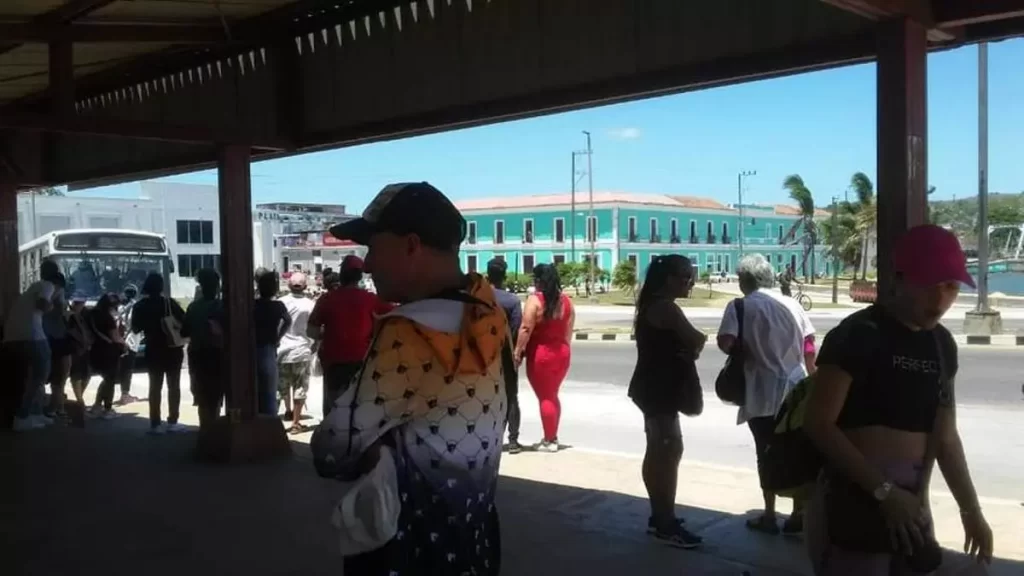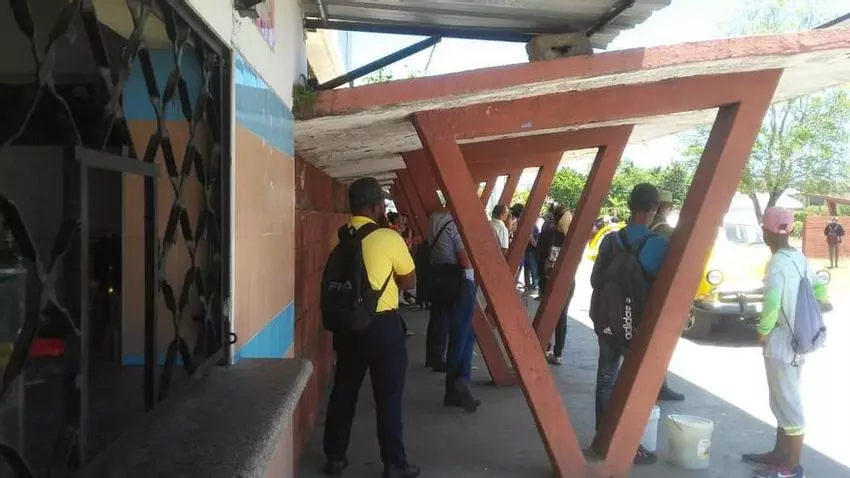U.S. official Brian Nichols accused Nicaragua of using migration as a “weapon” against the countries of the region

![]() 14ymedio, Havana, 1 May 2024 — The United States, in its talks with Cuba, continued to demand the release of political prisoners. This was one of the points addressed by both countries during the meeting last month, as confirmed on Tuesday by the U.S. Undersecretary of State for the Western Hemisphere, Brian Nichols, during a visit to Miami, Florida. “We always insist on the importance of respecting human rights, especially those of the most vulnerable,” said Nichols, who recently used his social networks to describe as “infuriating” the sentences of up to 15 years in prison for “Cubans who demonstrated peacefully in Nuevitas in 2022. The continuous repression of the Cuban government against Cubans who strive to fulfill their basic rights and needs is inconceivable.”
14ymedio, Havana, 1 May 2024 — The United States, in its talks with Cuba, continued to demand the release of political prisoners. This was one of the points addressed by both countries during the meeting last month, as confirmed on Tuesday by the U.S. Undersecretary of State for the Western Hemisphere, Brian Nichols, during a visit to Miami, Florida. “We always insist on the importance of respecting human rights, especially those of the most vulnerable,” said Nichols, who recently used his social networks to describe as “infuriating” the sentences of up to 15 years in prison for “Cubans who demonstrated peacefully in Nuevitas in 2022. The continuous repression of the Cuban government against Cubans who strive to fulfill their basic rights and needs is inconceivable.”
Among those sentenced was Mayelín Rodríguez Prado, the then 21-year-old young woman who transmitted the protests through Facebook, charged with the crimes of “enemy propaganda of a continuous nature” and “sedition.”
Nichols explained that it is “a legal process of analysis within several Government Departments that finally reaches the Secretary of State for his “determination”
Nichols also said that he didn’t have any doubt about the unity of the leadership of the Cuban regime. “I think that instead of speculating about it after 60 years, it is better to focus on the government’s actions.” continue reading
The official told several media in Miami that the Island has been asked to stop the irregular migratory flow through Nicaragua, while it has insisted on ending the sanctions. However, he clarified that Cuba’s removal from the list of state sponsors of terrorism is not on the negotiating table: “it is not something we can negotiate.”
Nichols explained that it is “a legal process of analysis within several Government departments that finally reaches the Secretary of State for his determination,” according to a report by journalist Mario J. Pentón for Martí Noticias.
The inclusion of Cuba on the list in January 2021 was one of the last decisions taken by the Administration of Republican Donald Trump (2017-2021) before leaving power.
The United States then justified the measure by alluding to the presence on the Island of members of the Colombian guerrillas of the National Liberation Army (ELN), who traveled to Havana to start peace negotiations with the Government of Colombia.
“The regime of Ortega and Murillo has taken advantage of migration as a weapon against the countries of the region, including the United States,” Nichols said
During his conversation with journalists in Miami, Brian Nichols also accused the Nicaraguan government of Daniel Ortega of using migration as a “weapon” against the countries of the region, including the United States.
“The Government in Nicaragua, the Ortega and Murillo regime, has taken advantage of migration as a weapon against the countries of the region, including the United States, because there are millions of irregular immigrants throughout the hemisphere, many of them due to the actions of the Nicaraguan regime.”
In the last three years, more than 700,000 Venezuelans, 363,000 Nicaraguans, 342,000 Haitians and 600,000 Cubans have reached the southern border, reported Martí Noticias. “All are favored by policies that promote free visas implemented by Daniel Ortega’s regime after its disagreements with the United States.”
Translated by Regina Anavy
____________
COLLABORATE WITH OUR WORK: The 14ymedio team is committed to practicing serious journalism that reflects Cuba’s reality in all its depth. Thank you for joining us on this long journey. We invite you to continue supporting us by becoming a member of 14ymedio now. Together we can continue transforming journalism in Cuba.
















